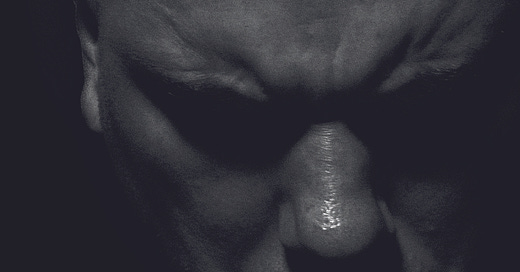About Phil Anselmo Yelling "White Power!"
UPDATE: Phil Anselmo has published an apology.
As you probably heard, Phil Anselmo, former singer of Pantera (as well as Down and a bunch of other projects) decided to end a show by yelling “White Power!” and giving what can only be described as a Nazi salute. After people called him out on it, he defended his actions by claiming that it was an inside joke referring to the fact that he had been drinking white wine all night.
As far as excuses go, that’s pretty dodgy.
The aftermath of Anselmo’s outburst has been bizarre. Most of all because it has been seen as a sign of a problem not in Anselmo, but in metal itself. This included an 11-minute video by Machine Head’s Robb Flynn, as well as reports by some of the largest publications in the genre, decrying Anselmo’s actions, and taking the brave and controversial stance of condemning nazism.
It’s understandable that people want to criticize Anselmo for what he did. Even though he seems to be the kind of person who’s daft enough to think that his edgy nonsense is acceptable and funny, it’s easy to see why many people took offense to it. After all, it isn’t the first time that Anselmo has been accused of some kind of racist (or racist-adjacent) behavior. The problem is that the coverage of the incident has completely falsified how it has been perceived, as well as what it says about metal as a whole.
Robb Flynn’s video, titled “Racism in Metal”, includes in its description “Phil Anselmo screams "wh**e p**er", and the silence is deafening.” Asides from the bizarre self-censoring of the words “white” and “power”, it’s hard to understand what silence Flynn is talking about. After all, as soon as the video of Anselmo surfaced, people started to discuss it, and the media wrote about it. Bizarrely, the more people who covered the situation, the more they complained about how nobody was talking about it. They valiantly argued against this strawman of a silent metal community, quiet in the face of racism, even though every single mainstream metal outlet has covered and criticized what Anselmo did (e.g. TeamRock, Metal Injection, Loudwire, Blabbermouth, Metal Sucks, Spin, Noisey, etc.).
At best, it’s outrage, click-baiting, coverage; at worst, it’s a deliberate attempt to push a false narrative that paints every metal musician and fan as a cryptofascist, unless they publicly denounce whatever has outraged the media on that day. We should not want this culture to be shaped by a constant demand for public denunciations, expecting people to apologize for things they did not do, lest they are labeled a racist/nazi/fascist/terrorist/etc.
In addition to this bizarre coverage, some have argued that Anselmo’s behavior should also make people stop listening to his music (and, by extension, Pantera), since that would mean that they somehow endorse Phil’s nonsense. I disagree with that line of thinking.
While it is completely legitimate to make the choice to stop supporting an artist because of their behavior or politics, it’s a mistake to assume that those who don’t follow suit are somehow endorsing them. Aside from the fact that most people are not chronically online, and therefore ignore whatever nonsense someone was recorded saying or doing, it’s dangerous to demand the erasure of artists whose ideas we dislike, particularly when those ideas are not manifest in their art.
While there are artists whose ideologies are evident in their music, many other artists keep their ideas and their art separate. Despite Dave Mustaine’s descent into rightoid born-again Christianity, for example, Megadeth is not an expression of that belief system. The same can be said of Iced Earth which, despite John Schaeffer’s Zeitgeist-inspired conspiracy theories, has not turned into a vehicle for that nonsense. Similarly, Kiss is not a Zionist band, despite Gene Simmons’ commitment to that ideology. It’s dangerous to suggest that continuing to like those artists necessarily means that they endorse their ideas.
It’s important to remember that the issue of artists with “bad” ideas isn’t unique to this type of art. Salvador Dali was an apparent supporter of fascism, as were Karl Orff and Arno Breker, Richard Wagner was an avowed anti-semite, Pablo Neruda, a Nobel laureate, was a Stalin supporter, etc., etc., etc. Although, understandably, for many people these ideas taint the works of these artists (this is why, for example, performing Wagner operas in Israel usually encounters angry protests), it’s undeniable that erasing their output would deprive us from important works of art.
There are artists whose art I don’t support precisely because I dislike their ideas, or their behavior. Therefore, my argument isn’t that you must separate the art from the artist. Instead, it’s that you should be the one making that decision. Virtue-signaling publications (or artists, for that matter) should not give themselves the right to decide for you.



